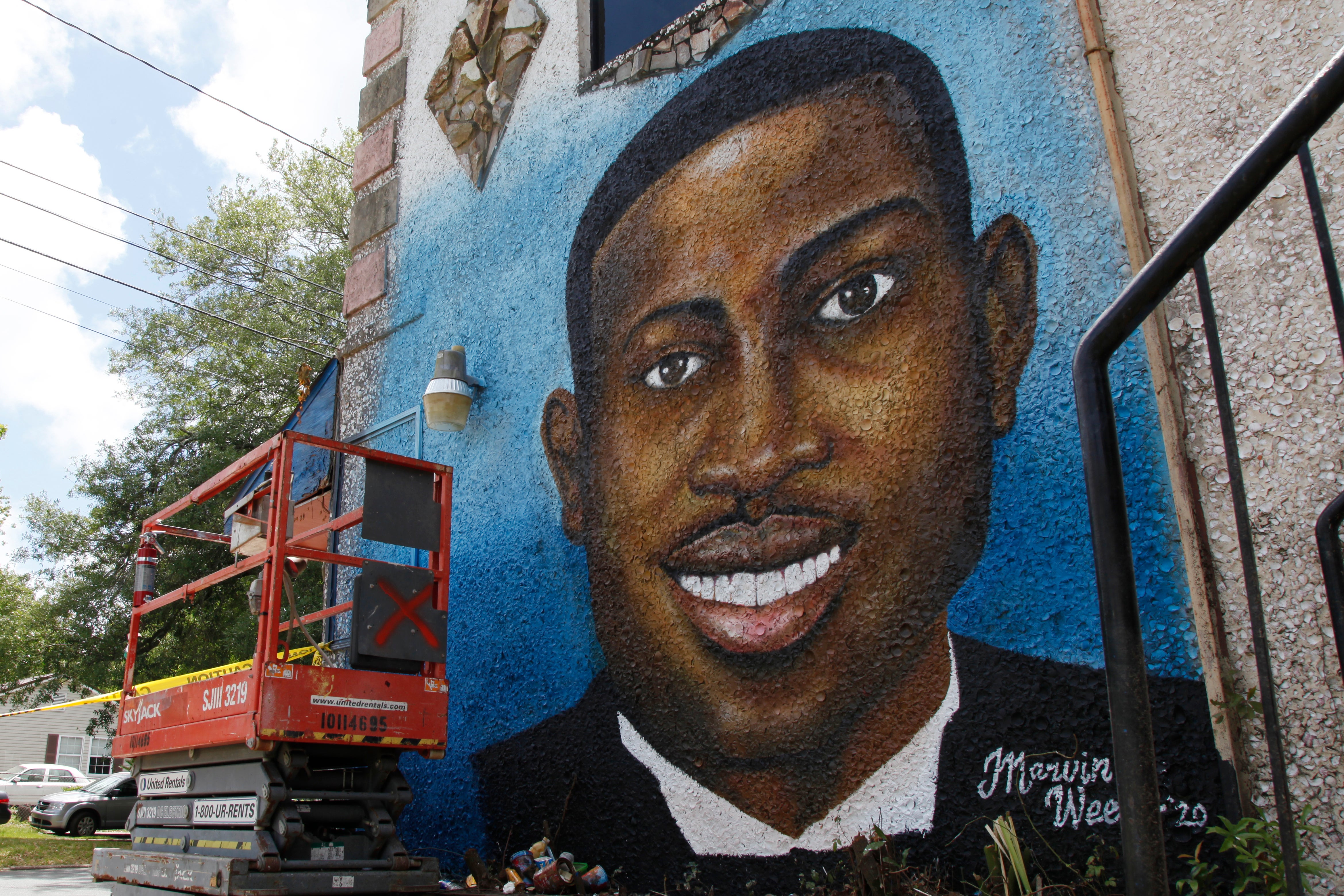Witnesses recall racist comments by men in Arbery killing
Witnesses in the federal hate crimes trial of the men convicted of murdering Ahmaud Arbery say they recall racist statements by two of the defendants

Your support helps us to tell the story
From reproductive rights to climate change to Big Tech, The Independent is on the ground when the story is developing. Whether it's investigating the financials of Elon Musk's pro-Trump PAC or producing our latest documentary, 'The A Word', which shines a light on the American women fighting for reproductive rights, we know how important it is to parse out the facts from the messaging.
At such a critical moment in US history, we need reporters on the ground. Your donation allows us to keep sending journalists to speak to both sides of the story.
The Independent is trusted by Americans across the entire political spectrum. And unlike many other quality news outlets, we choose not to lock Americans out of our reporting and analysis with paywalls. We believe quality journalism should be available to everyone, paid for by those who can afford it.
Your support makes all the difference.Two women who knew the white father and son convicted of murdering Ahmaud Arbery testified at their federal hate crimes trial Friday that they had heard both men make racist statements, including crude sexual remarks directed at one of the women who had dated a Black man.
Greg and Travis McMichael armed themselves and chased Arbery in a pickup truck two years ago after spotting the 25-year-old Black man running in their coastal Georgia neighborhood. A neighbor, William “Roddie” Bryan, recorded cellphone video of Travis McMichael blasting Arbery with a shotgun.
All three men were convicted of murder last fall in a Georgia state court. They're now standing trial in a separate case in U.S. District Court, charged with violating Arbery's civil rights and targeting him because he was Black. The McMichaels and Bryan have pleaded not guilty.
A woman who served under Travis McMichael in the U.S. Coast Guard a decade ago testified Friday that he made crass jokes mocking “that I had been sexually active with an African American man” when he learned that she had previously dated a Black man.
“He called me an N-word lover,” Kristie Ronquille told the jury, saying she found his comments “infuriating and disrespectful.”
Ronquille said she never reported Travis McMichael's remarks, which he made while they were on duty at a Coast Guard station in Pascagoula, Mississippi, in part because he was a supervisor.
Travis McMichael's attorney, Amy Lee Copeland, noted that Ronquille had previously told the FBI in a recorded interview that she was “90% sure” he had called her a name using a racial slur. Copeland also noted Ronquille told the FBI how much she disliked Travis McMichael.
Also on the witness stand Friday, Kim Ballesteros testified that Greg McMichael once mocked a Black woman he rented a home to. Ballesteros and her husband lived across the street from the McMichaels roughly three years ago and were talking about their experiences as landlords.
Ballesteros said Greg Michael told her that he nicknamed his former Black tenant “the Walrus" because of her skin color and her size. He said he once disconnected her home air-conditioner during the summer when she was late paying rent.
“I was surprised,” Ballesteros said. “It was racist and uncomfortable, and I was frankly disappointed.”
Greg McMichael's attorney, A.J. Balbo, noted that Ballesteros continued to speak to Greg McMichael after that incident and that her testimony showed he had been willing to rent property to Black people.
Evidence that the McMichaels and Bryan held racist views of Black people is critical to prosecutors' case that Arbery's death was a hate crime.
On Wednesday, an FBI analyst testified that Travis McMichael repeatedly used the N-word and other racist slurs in text messages and social media in the months and years before the killing. They included posts describing violence against Black people.
Greg McMichael posted a Facebook meme stating “Irish slaves” in America were mistreated more than any group in the nation’s history. Bryan also used slurs in a number of electronic messages, including several sent on Martin Luther King Jr. Day that mocked the holiday devoted to the civil rights leader.
Defense attorneys denounced their clients’ racist messages as offense and indefensible. But they also have said the deadly pursuit of Arbery was motivated by an earnest, though erroneous, suspicion that Arbery had committed crimes instead of his race.